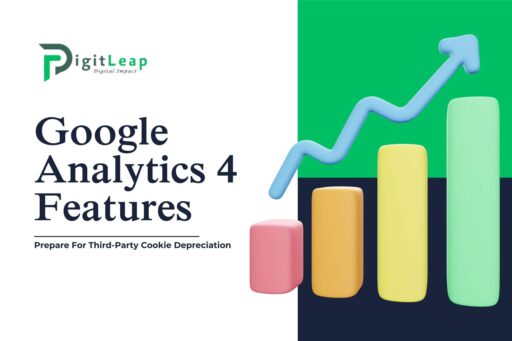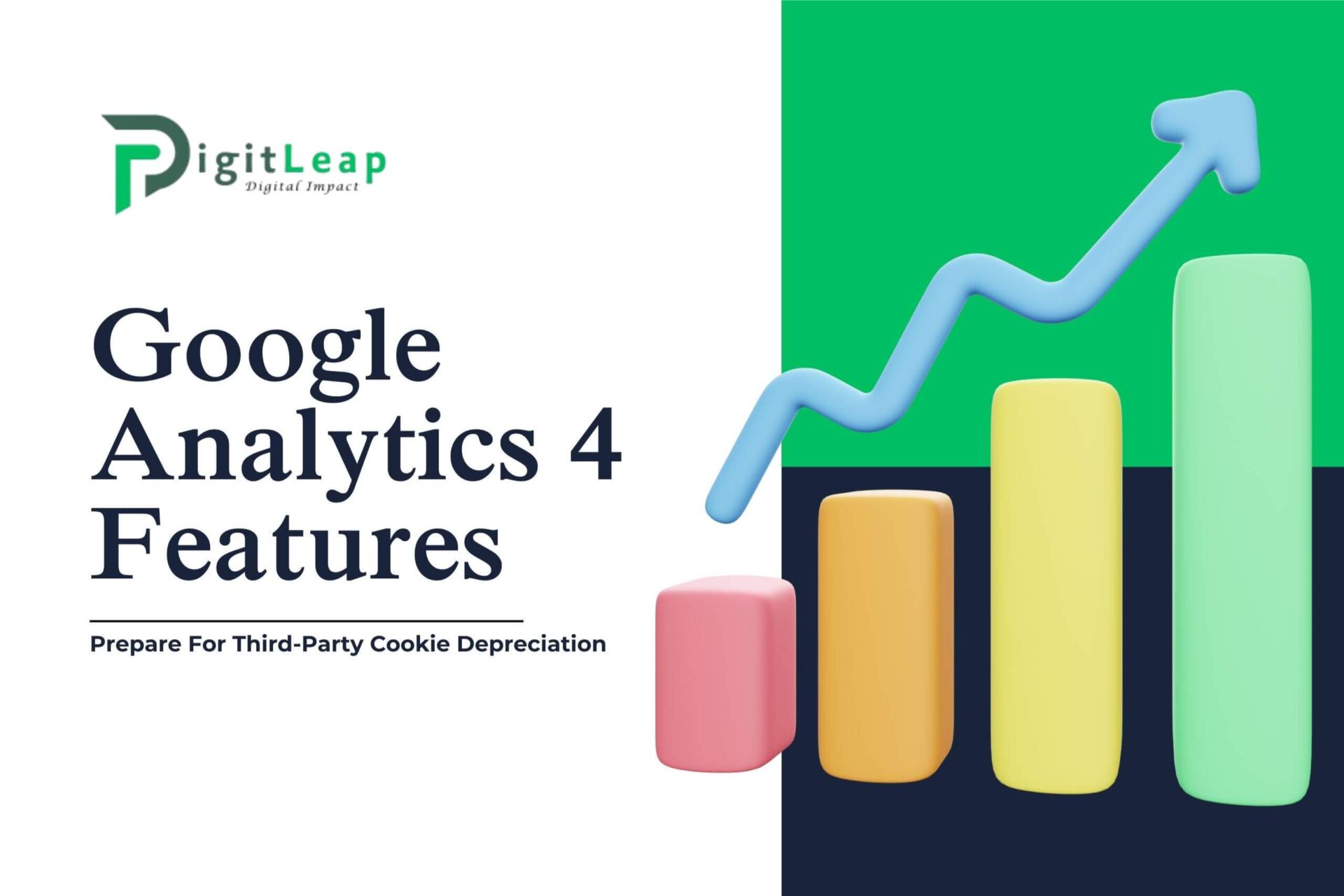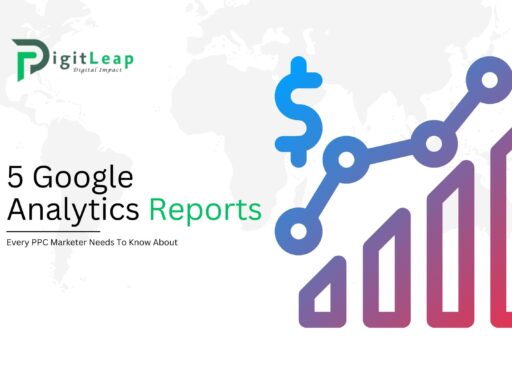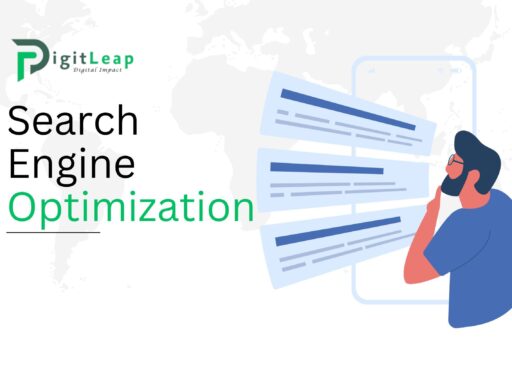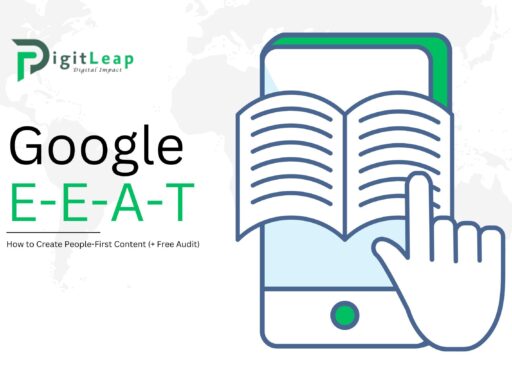Google Analytics 4 Features To Prepare For Third-Party Cookie Depreciation
As third-party cookies continue to phase out, the digital marketing landscape is undergoing a significant shift. The retirement of third-party cookies presents challenges for advertisers and businesses who rely on tracking user behavior across websites. Thankfully, Google Analytics 4 (GA4) is designed to help marketers prepare for this transition by offering features that work effectively in a cookie-less future.
GA4 focuses on privacy-first tracking, predictive analytics, and cross-device measurement, ensuring businesses can continue to gather valuable insights while respecting user privacy. In this article, we’ll explore the key GA4 features that can help you prepare for third-party cookie depreciation.
1. Event-Based Data Model
One of the biggest changes in GA4 is the shift to an event-based data model. Unlike Universal Analytics, which was focused on sessions, GA4 allows you to track all user interactions as events. This means that actions like clicks, page views, and transactions are all treated as separate events, giving you a more detailed view of user behavior.
With cookies being phased out, this event-based model becomes even more valuable because it enables better tracking of individual actions, regardless of the user’s device or cookies. You’ll still have access to essential behavioral data, ensuring you can optimize your marketing strategies.
2. Enhanced Machine Learning and Predictive Metrics
GA4 comes equipped with advanced machine learning algorithms that allow businesses to predict user behavior even when data collection is limited due to cookie restrictions. Features like predictive metrics, including purchase probability and churn probability, give you insights into the likelihood of users completing key actions, such as making a purchase or leaving your site.
These AI-driven insights are critical as third-party cookies disappear. You can still make informed decisions about your audience, optimize your campaigns, and even predict future outcomes based on the data that GA4 can gather without relying heavily on cookies.
3. Cross-Platform Tracking
With third-party cookies on their way out, tracking users across different platforms and devices will be more challenging. However, GA4 is designed with cross-platform tracking in mind. It enables you to track users as they move between your website and mobile app, providing a more complete picture of the customer journey.
By using a unique user ID, GA4 can track interactions across various platforms without relying on cookies. This is especially beneficial for businesses with both web and app experiences, as it provides deeper insights into how users engage with your brand across multiple touchpoints.
4. First-Party Data Focus
As third-party cookies are deprecated, first-party data will become the cornerstone of digital marketing. GA4 is designed to help businesses maximize the use of their first-party data. It provides tools to gather, analyze, and make use of the data that you collect directly from your users, such as through forms, logins, or customer interactions on your own platforms.
By focusing on first-party data, GA4 ensures that you continue to have access to valuable insights while respecting user privacy. This is critical for building strong, data-driven marketing strategies in a future where reliance on third-party data will no longer be viable.
5. Privacy-First Approach
GA4 is built with privacy at its core, ensuring that you can gather the data you need while complying with regulations like GDPR and CCPA. The platform supports consent mode, which adjusts data collection based on the user’s consent choices. This means that even if a user opts out of tracking, GA4 will still provide aggregate data to help you measure performance.
With privacy regulations becoming more stringent and cookies being phased out, GA4’s privacy-first approach allows you to continue gathering data responsibly, without putting your business at risk of non-compliance.
6. Improved Reporting and Insights
GA4 offers a more flexible reporting interface compared to its predecessor, Universal Analytics. It provides customizable reports that allow you to focus on the metrics that matter most to your business. With the ability to create custom funnels, pathing reports, and more, GA4 helps you dig deeper into your data and gain insights that aren’t cookie-dependent.
These improved reporting features will be essential as businesses transition away from third-party cookies. You’ll have the tools to analyze user behavior and adjust your strategies accordingly, all while working within a more complex, privacy-focused environment.
7. Audience Building Without Third-Party Cookies
Building and targeting audiences based on user behavior becomes more complex without third-party cookies. However, GA4 allows you to create audiences using first-party data and event-based tracking. You can build segments based on user actions on your website or app, such as purchases, sign-ups, or time spent on a particular page.
These audience-building tools are critical for marketers looking to continue personalizing their ads and content without relying on third-party cookies. By leveraging GA4’s features, you can still create targeted campaigns that speak directly to the needs and interests of your audience.
Conclusion
The depreciation of third-party cookies is changing how businesses approach digital marketing, but Google Analytics 4 is designed to help you navigate this shift seamlessly. With features like event-based tracking, machine learning, cross-platform capabilities, and a strong focus on first-party data, GA4 empowers you to continue gathering valuable insights while staying compliant with privacy regulations. At DigitLeap, we understand how important it is to adapt to these changes, and GA4 provides the tools needed to keep your data-driven marketing efforts on track in a privacy-first, cookie-less future.

